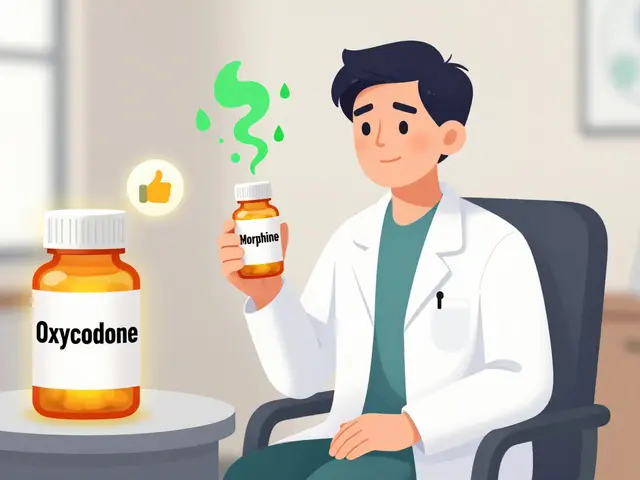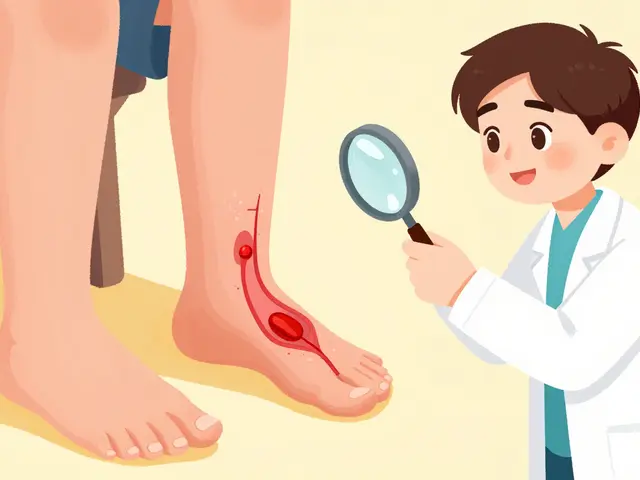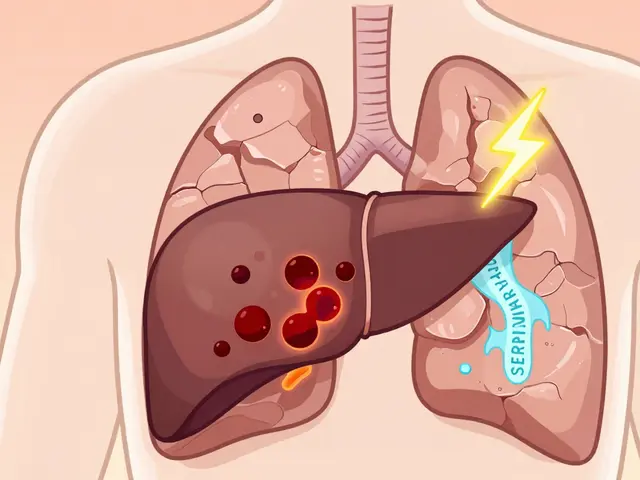Flavoxate: What it treats and how it helps
Sudden urges to pee, frequency, and bladder spasms can wreck your day. Flavoxate (often sold as Urispas) is a prescription medicine used to calm bladder muscle spasms and reduce the urgent need to urinate. If your doctor has mentioned antispasmodics, flavoxate might be the option they suggest.
How flavoxate works and when it’s used
Flavoxate relaxes the smooth muscle in the bladder and blocks some nerve signals that trigger spasms. That reduces urgency, frequency, and painful cramping. Doctors most commonly prescribe it for symptoms caused by urinary tract infections, bladder inflammation, or other conditions that lead to involuntary bladder contractions. It’s not a cure for the underlying disease, but it can make daily life much easier while other treatments work.
Practical dosing, timing, and what to expect
Adults usually take flavoxate as an oral tablet. A common dose is 200 mg three times a day (your doctor will tell you the exact amount). Some people notice improvement within an hour; for others it can take several days of regular use. Take it with food if it upsets your stomach, and try to take doses at the same times each day to keep levels steady.
Missing a dose? Take it when you remember unless it’s close to the next dose. Don’t double up to catch up. If you stop taking flavoxate suddenly and your symptoms return, talk to your clinician about the best plan.
Common side effects are dry mouth, blurred vision, constipation, dizziness, and sometimes a faster heartbeat. These come from flavoxate’s anticholinergic effects (the same reason antihistamines can make you drowsy). Most side effects are mild and go away after a few days, but let your doctor know if they’re severe or persistent.
Avoid flavoxate if you have untreated narrow-angle glaucoma, severe ulcerative colitis, myasthenia gravis, or a blockage in your stomach or bladder — anticholinergic drugs can make these worse. Tell your prescriber about other medicines you take, especially other anticholinergics, certain antidepressants, antihistamines, and medications that slow digestion or emptying of the stomach.
Special groups: Older adults can be extra sensitive to confusion, falls, and memory problems from anticholinergics. If you’re pregnant, planning pregnancy, or breastfeeding, discuss risks and benefits with your clinician.
Red flags: Stop the drug and seek care if you get sudden vision changes, a very fast heartbeat, severe abdominal pain, difficulty urinating, high fever, or signs of an allergic reaction like swelling or rash.
Want to know if flavoxate is right for you? Ask your doctor about the cause of your bladder symptoms, alternative medicines, and non-drug options like pelvic floor therapy or bladder training. Small changes—timed voiding, fluid management, and pelvic exercises—often work together with medication to give the best results.
Flavoxate and Disabilities: How it Can Help Those with Limited Mobility
As a blogger, I recently came across the topic of Flavoxate and its potential benefits for individuals with disabilities and limited mobility. Flavoxate is a medication that helps relax the muscles in the urinary tract, providing relief for people who may experience frequent urination or incontinence. For those with limited mobility, this medication can be life-changing, as it can significantly reduce the need for frequent bathroom trips and the associated stress. I believe that spreading awareness about the benefits of Flavoxate for people with disabilities is crucial, as it can greatly improve their quality of life. I look forward to exploring this topic further and sharing more information with my readers.
Read More





